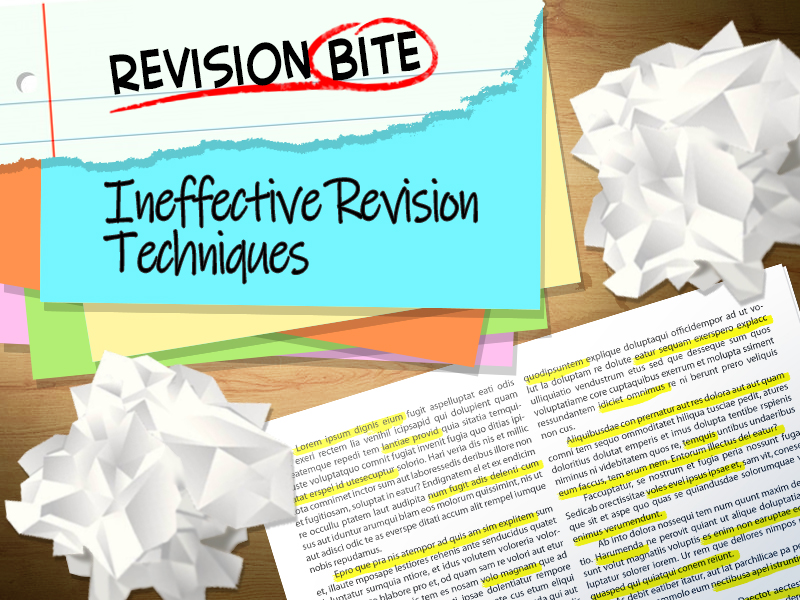One key to successful revision is to recognise that what worked for us in the past will not necessarily continue to be effective, especially as we encounter subject matter of increasing complexity. Research shows that many people use the same handful of popular approaches but that these techniques don’t really work effectively for university-level revision. This Revision Bite looks at a few of these common but ineffective techniques.

Examples of common but ineffective approaches
It’s time to start revising for your exams. You choose a lecture or topic to start with, dig it out of the huge lever-arch file where you keep all your notes and begin re-reading the material. After you’ve read through it you get a fresh sheet of paper –or open up a WORD document – and start making notes. Maybe you try to summarise the original notes, or maybe you decide the best way to take it all in is to write it all out again verbatim. Every now and then you stop to highlight an important line or two. If you’re an advanced highlighter you may even have some sort of colour-coding system in place.

Does this sound like you? If so, there’s no easy way to break this to you – it doesn’t really work. Research has shown these three techniques – re-reading, note taking and highlighting – to be largely ineffective and inefficient. But don’t take our word for it. Here’s a final year Cambridge medic who has researched this for himself.
If you’ve just discovered your approach to revising isn’t really very effective, don’t feel bad. A great many people have learned to learn using this type of approach and because it has ‘worked’ (probably at school) they stick with it. The good news is that there are other strategies out there that are more effective, more interesting and less time-consuming. We’ll look at some of these in the remaining Revision Bites.
Summing-up
Our time is valuable, even more so when it comes to studying and revising. Therefore we want to make the best use of that time, and that means working in a way that allows us to learn effectively and efficiently for both the short and the long term. The other Bites in this resource introduce you to some key strategies for doing just that, so be sure to check them out if you haven’t already done so. And don’t be daunted. It can be a scary prospect to change the way you revise but many of the strategies we suggest are simple to apply and probably build on things you already do. That’s the key – this is about evolution rather than revolution. There may be some circumstances where your existing approaches work just fine. We’re simply asking you to recognise where that’s not the case and to equip yourself with more tools you can turn to in such situations. And that’s what the remaining Revision Bites aim to help you do.
